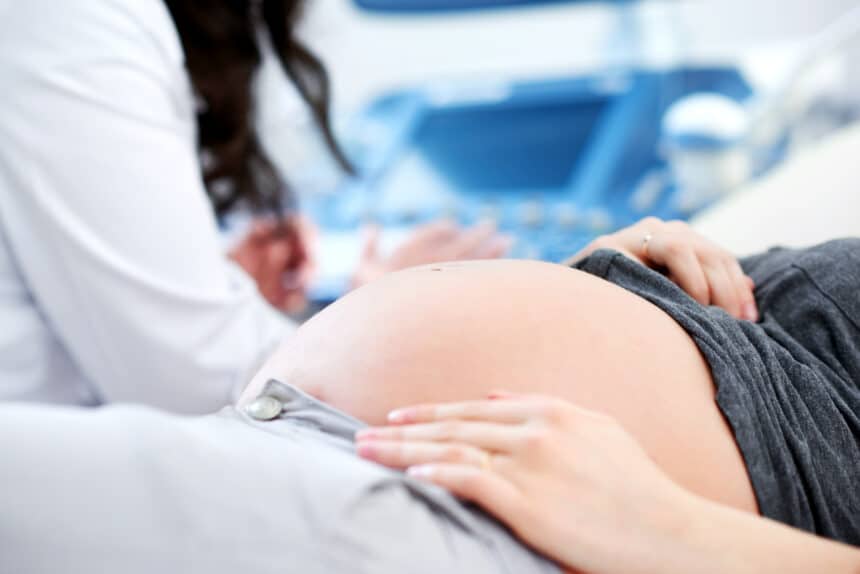CVS Pregnancy Tests: The Total Benefit, Risk, and Complication of CVS
Chorionic villus sampling (CVS), or chorionic villus biopsy, is a prenatal pregnancy test that involves taking a sample of tissue from the placenta to test for chromosomal abnormalities and certain other hereditary or biochemical anomalies. The placenta is a structure in the uterus that provides blood and nutrients from the mother to the fetus, so the infant can be tested by taking a tiny tissue of the placenta.
With CVS, the chorionic villi, tiny projections of placental tissue, are examined for the genetic material they contain. This material is the same as the baby’s, so it can detect many genetic defects and disorders early on. The process and testing will depend on the family history and the availability of lab testing at the time of the procedure.
CVS is done between the 10th and 12th weeks of pregnancy when the hCG (human chorionic gonadotropin) levels are high and the fetus is developed enough.
Although CVS provides answers to many questions about your baby’s health, it cannot detect neural tube defects, such as spina bifida.
This is why a woman that undergoes CVS is still required to get a follow-up blood test between 16 to 18 weeks of her pregnancy to screen for additional defects and anomalies.
With that said, there are two types of CVS procedures:
- Transcervical. When having a transcervical CVS procedure, the doctor inserts a catheter through the cervix into the placenta to obtain the tissue sample.
- Transabdominal. In the transabdominal CVS process, a needle is inserted through the uterus into the placenta to obtain a tissue sample.
It is worth mentioning that after CVS, there is a danger of spontaneous abortion in about 1 in 100 cases. This is why the healthcare provider should inform you of all the positives, the negative sides before undertaking it.
What Are the Benefits of CVS?

CVS is unlike any other pregnancy test like blood test, home pregnancy test, or ultrasound. This pregnancy test does not check for the general well-being of the infant, but a particular test for specific anomalies, for example, down disorder or cystic fibrosis.
This is why, if you have a history of certain conditions in your family, you may be offered a CVS test.
This way, doctors can detect such problems early in pregnancy, informing you of what you can do next. For instance, if you are expecting twins, CVS is one of the most reliable pregnancy tests for the early detection of fetus abnormalities.
However, even though this pregnancy test can give you and your husband a clear answer to the question of whether your babies are well, it does come at an increased risk of abortion for twins.
The CVS procedure also identifies chromosomal problems like Down syndrome or other genetic diseases such as cystic fibrosis, Tay-Sachs disease, and sickle cell anemia. For these, it is 98% accurate that it will detect such issues.
This pregnancy test will also tell you the sex of your baby early on because it identifies the disorders linked to one sex. For instance, certain types of muscular dystrophy occur most often in male babies.
CVS can be performed early in pregnancy (sooner than other pregnancy tests like amniocentesis), and the result is typically done within 10 days. Getting a CVS result allows ladies to make decisions early enough in their pregnancy. When the results are ready, many women benefit from having their question answered whether to keep the pregnancy or terminate it.
If you get negative results that indicate danger or abnormality, inform yourself well on the best options for you and the baby.
What Are the Risks of the CVS Pregnancy Test?
Unlike pregnancy tests, where you only need your morning urine to find out whether you are pregnant or not, CVS is more complex than that, involving certain risks.
To give the needed answers on the fetus’s well-being, CVS may convey a marginally higher risk of miscarriage compared to amniocentesis. This is all because the methodology is carried out in early pregnancy.
A disease might likewise happen, particularly when CVS was carried out before nine weeks. This danger appears inconsequential to the specialist’s experience or how the test was carried out. Because of this potential hazard, it is best to perform this test at the 10-weeks mark.
You should make sure the doctor has a lot of experience doing CVS, especially when it comes to twins. Because, as we mentioned before, there is an increased hazard for abortions for moms with twins.
The CVS Procedures and Possible Complications
In order to prepare for the test, the woman needs to her bladder reasonably filled with urine because doing CVS on an empty stomach is more challenging. She is positioned backward, and a needle is inserted into the abdomen, plucking a tissue of the placenta. The entire procedure takes about 3 minutes.
The mother may feel slight dragging or pulling sensation in the pelvis or legs, which is normal. Once the tissue is taken, the needles are removed, and the infant’s health is checked using an ultrasound.
Slight nausea, light headaches, and pain that feels like a menstrual issue may be felt after the procedure. Also, there may be slight discomfort when passing urine, but this is all a response to the test and will resolve within a day or two.
Who Should Be Tested With CVS?

As per the medical College of Obstetrics and Gynaecology, CVS testing ought to be offered to:
- Pregnant ladies who will be 35 or more (the danger of having a child with a chromosomal issue, for example, Down disorder rises with the age of the lady)
- Couples who have a kid with the complication or have a family history of certain imperfections
- Pregnant ladies with other irregular hereditary test outcomes
Your health specialist can advise you on whether this test is a good fit for you.
How Are the CVS Tests Performed?
Before undergoing this kind of test, you need to have informational talks with your healthcare provider and follow their instructions to have no negative outcome.
In order for you to feel comfortable, your physician should be there to answer any questions you might have before the procedure and give you proper instructions on the day of the testing.
The initial consultation will be done with a urine test and possibly even a blood test to determine your body’s hCG levels. This determines that everything is well with the fetus from a general standpoint.
Then, your physician will do an ultrasound exam. This works because it provides additional information on whether something is wrong with the fetus, and when everything clecks clear, a CVS can be performed.
Is the CVS Test Painful?
The amount of placental tissue taken is tiny; therefore, you should not feel anything more than a bit of pulling. Also, it is something that is done very quickly, which also minimizes the level of pain overall.
What Happens After the CVS Test?
One of the most important directions you should follow from your doctor is to rest immediately after a CVS test. To not feel dizzy or nauseated, you should lay down for the better part of the day and rest.
Do not do any strenuous physical activity, sex, and exercise for 3 days following the procedure. You may have some cramping and bleeding, which is normal, but tell your doctor or midwife. If you notice fluid leaking from your vagina, call your health care provider immediately.
CVS Result
You should get your results between 7 to 10 days after the procedure. CVS is very accurate. If there is a problem, you can meet with a genetic counselor and talk about your options based on the results in question.

